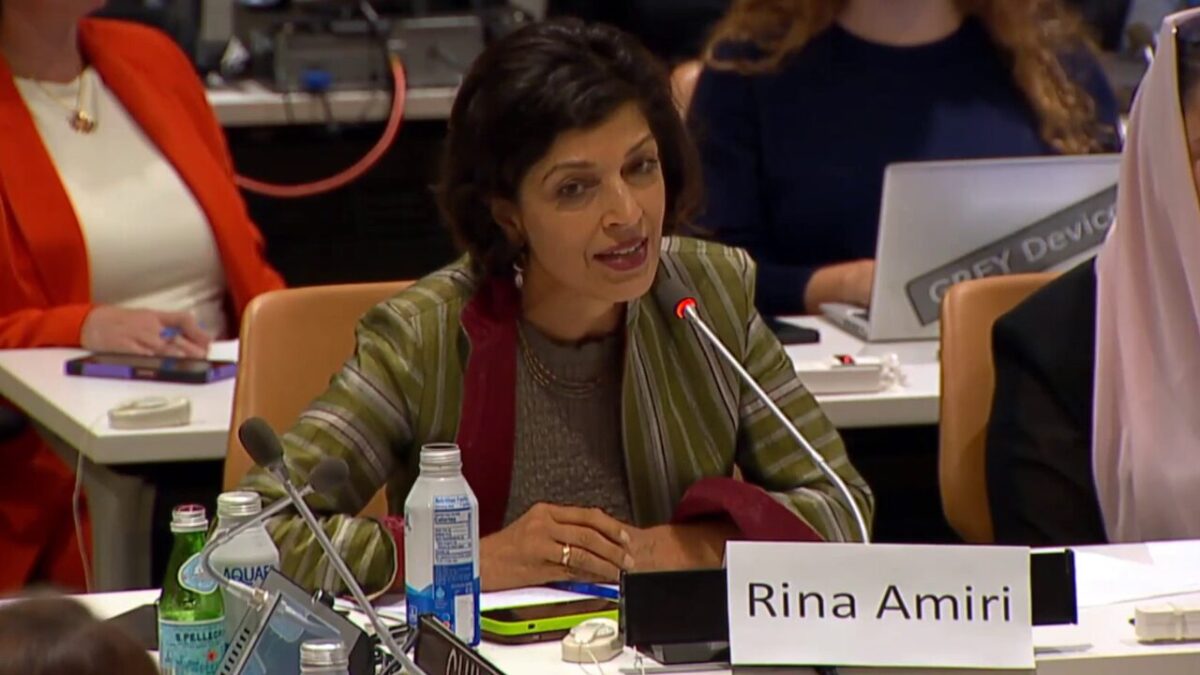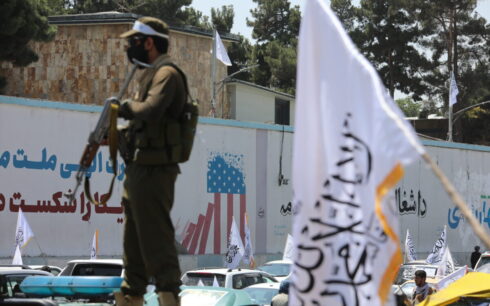At a United Nations side event this week, Rina Amiri, the U.S. Special Envoy for Women, Girls and Human Rights in Afghanistan, delivered a grave warning about the Taliban’s evolving policies toward women.
Amiri described the Taliban’s latest “vice and virtue” law as a turning point in the ongoing repression of women and girls in Afghanistan, suggesting it could signal their total erasure from public life.
“It’s been three years since we’ve seen relentless decrees imposed on women and girls in Afghanistan,” Amiri said. “Over 70 decrees, many more at the subnational level, culminating in the so-called Vice and Virtue Law. This constitutes gender persecution, and we have to see this as an inflection point.”
Amiri underscored that the implementation of the law, which enforces strict restrictions on women’s appearance, behavior, and movement, would signify a complete rollback to the Taliban’s 1990s policies. “If implemented, it will complete the erasure of Afghan women and girls in public space,” she warned.
The new law, she added, marks a stark shift in the Taliban’s messaging to the world. Initially, Taliban leaders claimed they were committed to women’s rights and would not revert to the harsh policies of their previous regime. At the time, they cited logistical and security concerns as reasons for restricting women. “Now, they call it an internal issue,” Amiri noted, “and they’re making it clear that they’re going backward, not forward.”
She criticized the Taliban’s actions as not just violations of international norms but as threats to the broader stability of Afghanistan. “This isn’t just a normative obligation being violated,” Amiri said, “it goes against the interests we all hold for an Afghanistan that is inclusive and at peace with itself and its neighbors.”
The impact, she emphasized, is wide-reaching. “It has a direct effect on humanitarian assistance,” she explained. “Women are essential in delivering aid to the most vulnerable populations, and they are also the ones most affected by these restrictions.”
Amiri also highlighted the human toll, saying that these policies are driving Afghans out of their homeland. “I’ve spoken to many Afghans who say, ‘I don’t want to leave my country, but when my daughter can’t get an education, when my wife can’t step out of the house, I will take every risk to move my family out of Afghanistan.’”
Her remarks concluded with a stark warning about the broader security implications of excluding women from society. “A country that is stripped of its women is a radicalized country,” Amiri said.
Her comments come at a time of mounting concern over the Taliban’s hardening stance on women’s rights, and as global leaders grapple with how to respond to the regime’s ongoing violations.





